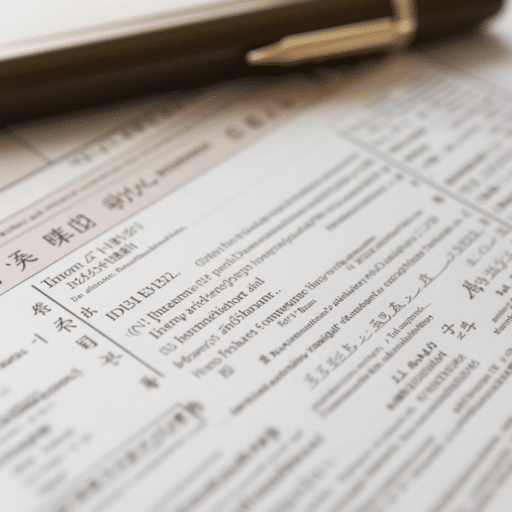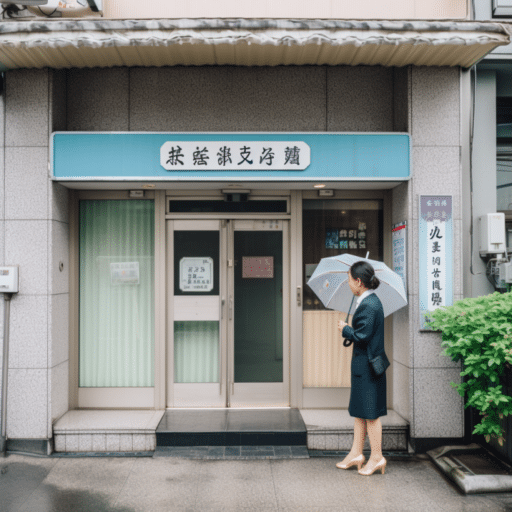
Life insurance in Japan, as in other countries, provides essential financial security to your loved ones in the event of your unexpected demise. It serves as a safety net, ensuring that your family remains financially secure, can pay for your final expenses, cover debts, or replace lost income.
If you want to invest as an expat or high-net-worth individual, which is what I specialize in, you can email me (advice@adamfayed.com) or use WhatsApp (+44-7393-450-837).
Table of Contents
The life insurance system in Japan is robust and well-structured, with numerous insurance companies offering a range of products to meet the diverse needs of the population.
Japanese life insurance companies are known for their high payout rates, and the industry itself is strictly regulated, ensuring a high level of security for policyholders.
It’s important to note that life insurance in Japan also includes a savings component, allowing policyholders to accumulate wealth while securing life coverage.
As an integral part of comprehensive financial planning, life insurance in Japan helps mitigate risk and provide long-term security.
Whether it’s providing for dependents, covering long-term debts, or planning for retirement, the role of life insurance cannot be overstated.
It’s crucial for both residents and foreigners in Japan to consider life insurance as a key tool in maintaining financial stability.
Acquiring life insurance in Japan as a foreign national involves meeting certain eligibility criteria. These vary across insurance providers but generally involve requirements related to visa status and residency.
To be eligible for life insurance in Japan, most companies require that foreign nationals possess a valid visa. Some insurers may require a long-term or permanent visa, while others may accept applicants with a medium-term visa such as a work or spouse visa.
Apart from the visa status, another key requirement is proof of residency. This typically involves having a registered address in Japan and living in the country for a certain minimum period – usually between 6 months to a year, depending on the insurance provider.
The process of applying for life insurance in Japan is straightforward. Once you meet the eligibility criteria, you can initiate the application, which generally involves the following steps:

Life insurance in Japan presents you with a range of options to choose from, depending on your specific needs. Here are four major types of life insurance policies you can find in Japan.
Term life insurance, often considered the simplest form of life insurance, provides coverage for a specified term, such as 10, 20, or 30 years. If you pass away within the policy term, your beneficiaries receive the death benefit.
However, if the term ends while you’re still alive, the coverage stops unless you renew the policy. Term life insurance in Japan is often the cheapest option in terms of premiums.
Whole life insurance in Japan is a type of permanent life insurance that provides lifelong coverage. Unlike term insurance, it includes a cash value component that grows over time.
This type of insurance tends to have higher premiums than term life insurance, but it can be a valuable tool for long-term financial planning, serving as a potential source of loans or withdrawals in the future.
Endowment life insurance is another popular life insurance in Japan. This policy combines life coverage with a savings plan.
The policy pays out a lump sum either on the death of the policyholder within a specified term or on survival at the end of the term. This makes it a useful tool for meeting financial goals, such as saving for a child’s education or retirement.
Variable life insurance is a type of permanent life insurance that combines death benefit protection with an investment component.
The cash value of the policy is invested, allowing you to potentially increase your policy’s value over time.
However, this type of life insurance in Japan also carries more risk, as the policy’s value can decrease if the investments underperform.
When you’re considering life insurance in Japan, it’s crucial to evaluate various coverage options to ensure the policy fits your needs.
You must determine the appropriate coverage amount, which is the money your beneficiaries would receive upon your death.
This amount should ideally cover your financial obligations and provide for your family’s future needs. This might include factors like outstanding debts, future education costs for children, or spousal support.
The duration of your policy is also essential. If you’re considering term life insurance, choose a term that covers you until your financial obligations decrease significantly.
For those considering permanent life insurance, like whole or variable life insurance, remember that it provides lifelong coverage.
Lastly, evaluate the cost of premiums. This is the amount you pay regularly to keep your life insurance policy active. The cost varies widely among providers and is based on your health, age, coverage amount, and policy type.
When buying life insurance in Japan, understanding the cost structure is vital. It involves more than just premiums.
Initial costs for life insurance in Japan might include an application fee or medical examination fee. Some insurers might waive these costs as part of a promotion, so it’s worth shopping around.
Monthly premiums are ongoing costs that you need to pay to keep your life insurance active. These premiums vary significantly based on the type of policy, your age, health status, and coverage amount.
Be aware of potential extra charges. Some life insurance policies in Japan might have administrative fees, investment management fees (in the case of variable life insurance), and surrender charges.

In obtaining life insurance in Japan or any other location, age and health significantly influence your policy’s coverage and premiums.
As you age, life insurance premiums tend to increase. When it comes to life insurance in Japan, companies base your premium on the age you start your policy.
So, the earlier you buy a policy, the less you’ll pay for your premium, all other factors being equal. Insurance companies recognize that as you age, the risk of health issues rises, hence the higher cost.
When discussing coverage, remember that certain policies may have age limits. For example, term life insurance usually has an upper age limit beyond which the coverage does not apply. It’s vital to consider this when choosing a life insurance policy in Japan.
In addition to age, your health status can significantly affect your life insurance policy.
Insurance companies conduct a health assessment, also known as underwriting, before approving your application. This process includes reviewing your medical records and may involve a medical examination.
For those with pre-existing health conditions, obtaining life insurance in Japan can be more expensive or, in some cases, difficult. On the other hand, if you’re in excellent health, you’re likely to secure more favorable premium rates.
Honesty is the best policy, especially when it comes to life insurance. Full disclosure of your health history and lifestyle habits is essential when applying for life insurance in Japan.
Insurance companies rely on the information you provide to accurately assess your risk level. Non-disclosure or misinformation can lead to significant issues, including policy cancellation or non-payment of a claim. If you fail to disclose crucial information, you might find that your policy is void just when you or your beneficiaries need it the most.
When applying for life insurance in Japan, it’s crucial to disclose key health-related information, including pre-existing conditions, smoking habits, alcohol consumption, and risky hobbies. You should also report significant life changes that may affect your coverage, such as occupational changes or increased family responsibilities.
While all the main points matter, understanding the fine print of your life insurance policy in Japan is equally important. Here, we discuss some essential details often buried in the small print.
Exclusions are situations or conditions where the insurance company won’t pay out the claim. Common exclusions include death due to risky behaviors or hobbies, certain pre-existing medical conditions, or deaths occurring in specific geographic locations. Understanding these exclusions can prevent unpleasant surprises later.
The termination clause in your policy outlines the circumstances under which your policy may be canceled. Common reasons include non-payment of premiums or if the insurance company discovers that you provided false information during the application. Ensure you understand these clauses to maintain your life insurance coverage in Japan effectively.
A grace period is a time you have to pay your premium after the due date without your policy getting canceled. Life insurance in Japan typically provides a grace period, but the length can vary. It’s crucial to know this period and ensure your premiums are always paid on time.
Understanding the claims process is crucial for your beneficiaries to receive the policy benefits promptly. This process usually includes notifying the insurance company, filling out claim forms, and providing necessary documents such as a death certificate. Familiarizing yourself with the process will ensure your beneficiaries can navigate the claims process smoothly, should the need arise.

As an integral part of setting up your life insurance in Japan, you need to understand the role of beneficiaries and how you should go about naming them.
In a life insurance policy, the beneficiary is the person or entity who will receive the policy payout upon the policyholder’s death. The rules in Japan are generally similar to those in other countries.
These are the first in line to receive the life insurance proceeds. You can name multiple primary beneficiaries and designate the percentage of the policy payout each should receive.
When naming primary beneficiaries for your life insurance in Japan, ensure you include their full names, their relationship to you, and the proportion of the payout you wish for them to receive.
These individuals or entities will receive the payout if the primary beneficiaries are unable to. For example, if the primary beneficiary passes away before or simultaneously with you, the contingent beneficiary would then receive the benefit. You should name and designate contingent beneficiaries with as much care as primary beneficiaries.
Life changes, such as marriage, divorce, the birth of a child, or death of a family member, can affect your initial choice of beneficiaries. Therefore, you need to keep your list of beneficiaries updated to reflect your current situation and wishes.
Navigating life insurance in Japan involves more than just understanding the policy; it also includes managing policy lapses, filing claims, and handling disputes.
Policy lapses occur when you fail to pay your life insurance premiums on time. If this happens, the insurance company may cancel your coverage.
However, most companies offer a grace period during which you can pay the overdue premium without the policy lapsing.
If your policy does lapse, contact your insurance company immediately. Depending on the circumstances, you might be able to reinstate it.
The process is straightforward when it’s time to file a claim on your life insurance policy in Japan. The claimant should contact the insurance company as soon as possible, provide the necessary documentation, including a death certificate, and complete any forms required by the insurer.
If your claim is denied, don’t panic. The first step is to understand why the insurance company denied the claim. If you believe the decision is unjust, you can dispute it. This may involve providing additional evidence, such as medical records, or seeking legal assistance.
Life insurance in Japan is a crucial aspect of financial planning, especially for foreigners living in the country. Understanding the policy intricacies, such as naming beneficiaries and dealing with potential disputes, is paramount to ensuring that you get the best possible coverage.
Taking out life insurance in Japan can seem daunting, but it doesn’t have to be. Armed with the right information, you can make informed decisions that best suit your situation and needs.
By preparing for the unexpected, you ensure the financial security of your loved ones and yourself.
Remember, life insurance in Japan isn’t just about safeguarding against the worst; it’s about creating a sense of safety and stability in a foreign country.
Pained by financial indecision? Want to invest with Adam?

Adam is an internationally recognised author on financial matters, with over 760.2 million answer views on Quora.com, a widely sold book on Amazon, and a contributor on Forbes.